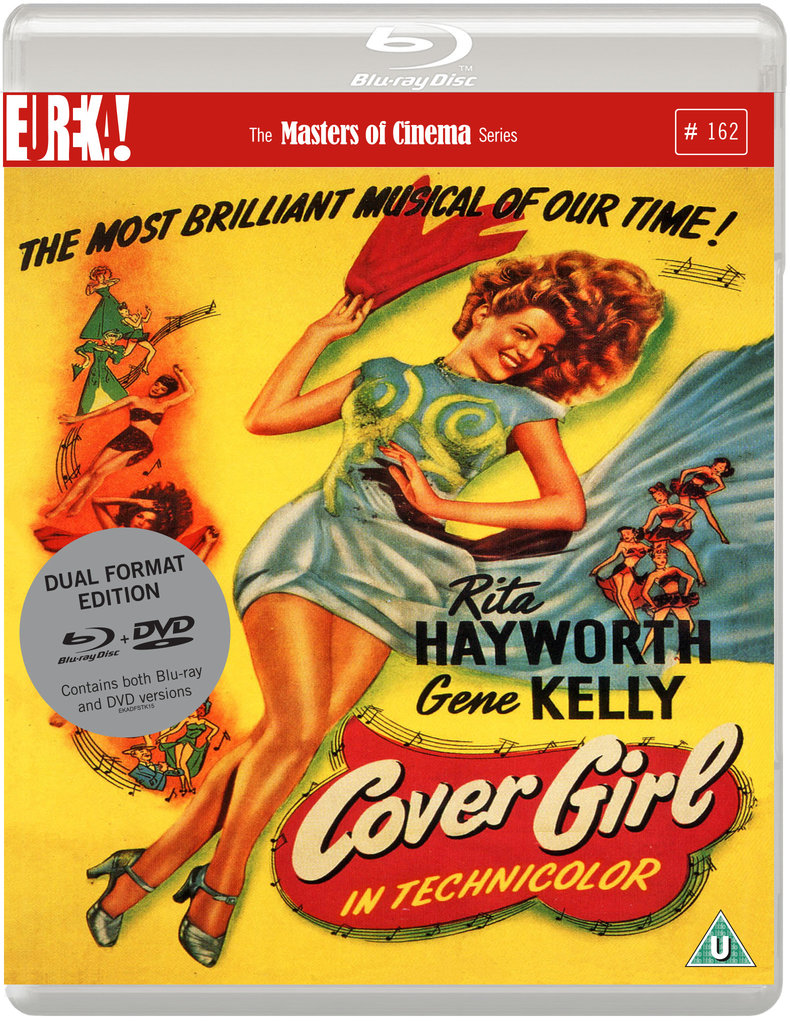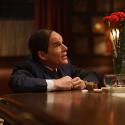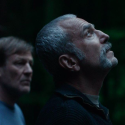Eureka’s restored print of Charles Vidor’s 1944 musical Cover Girl looks and sounds astonishingly vivid, especially when watched on Blu-ray. Would that everything were so simple: despite a starry creative team, the film makes for frustrating viewing. Doubly so when you consider that this was one of Jerome Kern’s final scores, with lyrics provided by Ira Gershwin which are the film’s one constant pleasure: couplets like “Because of Axis trickery/My coffee now is chicory” are peerless, especially when delivered in brash style by a young Phil Silvers.
Gene Kelly plays Danny McGuire, injured in combat and reduced to running a Brooklyn nightclub, whose star dancer Rusty Parker (Rita Hayworth) becomes an overnight sensation after appearing on a magazine cover. Despite McGuire’s love, she takes up a wealthy producer’s offer to swap Brooklyn for Broadway, agreeing to marry him along the way. The eventual happy ending won’t surprise anyone, but there’s an awful lot of chaff to get through en route, notably an interminable series of flashbacks where Hayworth plays her own grandmother. Including an absolutely terrible faux-cockney number, the dubbed Hayworth’s stilted performance making Dick Van Dyke’s unfairly-maligned turn in Mary Poppins seem like Stanislavsky method acting.
 Still, the high spots are terrific. “Make Way for Tomorrow” begins with Kelly, Hayworth and Silvers in a quayside oyster bar, swiftly skipping outside for a superb extended dance sequence on a huge soundstage, encountering drunks, milkmen and a baton-twirling policeman. Kelly had been given free reign as choreographer, the scene's glories hinting at Singin’ in the Rain’s title number. And the passage where he tap dances with his own translucent reflection is eye-popping. Eve Arden’s sardonic PA gets many of the best lines, and the extravagant title song showcases Hayworth’s background as a dancer, her Rusty stepping out of a cloud before shimmying seductively down an improbably long ramp.
Still, the high spots are terrific. “Make Way for Tomorrow” begins with Kelly, Hayworth and Silvers in a quayside oyster bar, swiftly skipping outside for a superb extended dance sequence on a huge soundstage, encountering drunks, milkmen and a baton-twirling policeman. Kelly had been given free reign as choreographer, the scene's glories hinting at Singin’ in the Rain’s title number. And the passage where he tap dances with his own translucent reflection is eye-popping. Eve Arden’s sardonic PA gets many of the best lines, and the extravagant title song showcases Hayworth’s background as a dancer, her Rusty stepping out of a cloud before shimmying seductively down an improbably long ramp.
Production design is exquisite, from the fashion magazine’s gleaming art-deco office to the nightclub’s cramped kitchen and dressing-rooms. Vidor’s vibrant deployment of primary-coloured costumes anticipates both Jacques Demy and La La Land. Hayworth, Kelly and Silvers are always watchable. But slack pacing and a curiously unmemorable score mean that Cover Girl hasn’t aged well. Disc presentation, however, is excellent: there’s a brief appreciation from Baz Luhrmann and Farran Smith Nehme’s booklet essay is a pleasure to read.
Overleaf: watch the trailer for Cover Girl















Add comment